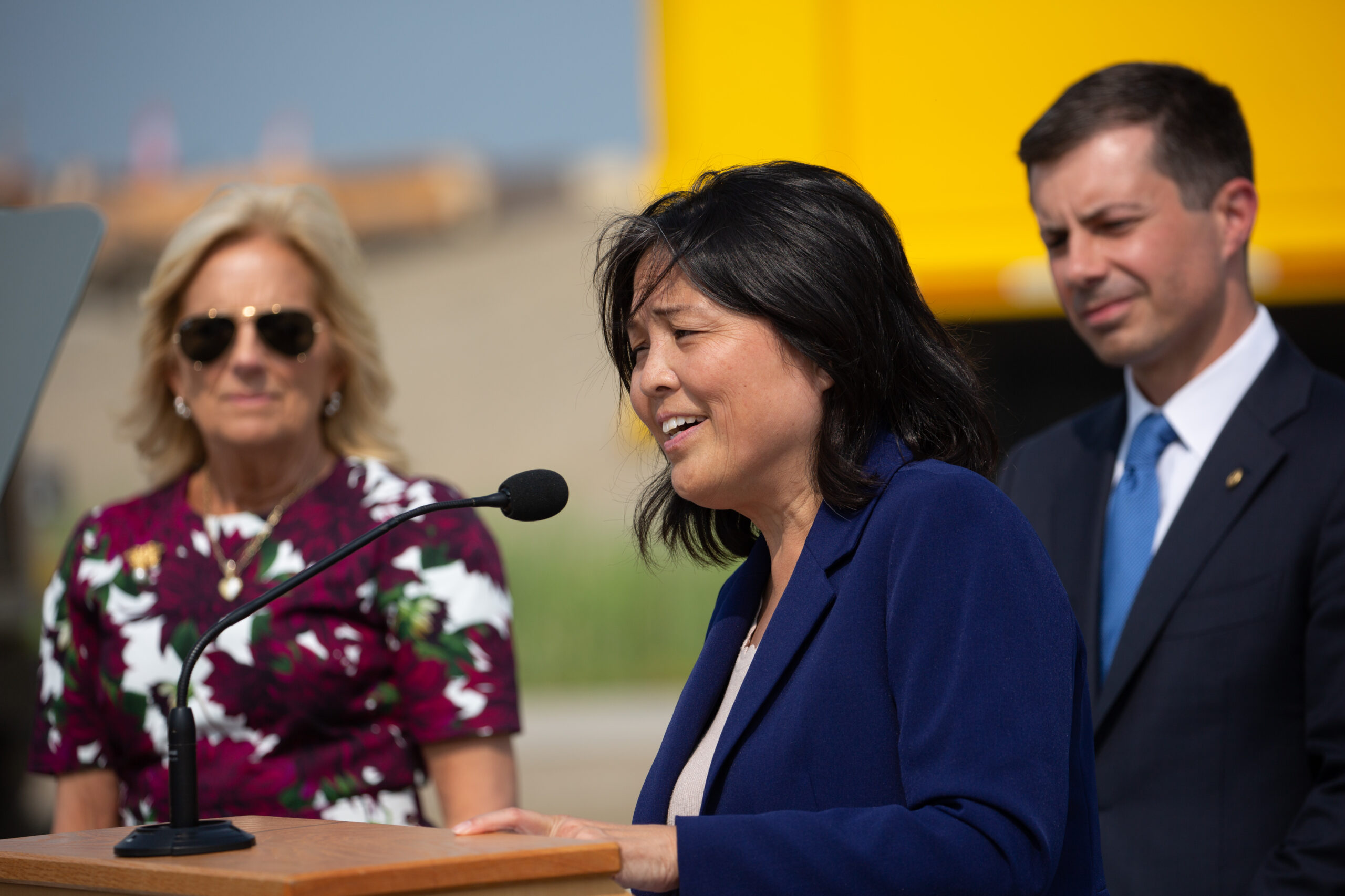The Biden administration’s pick to lead the Department of Labor (DOL), Julie Su, may never be confirmed as the next Secretary of Labor because of political opposition in the Senate. Su will likely continue in her current role as Acting Secretary of Labor but will not have the full federal rulemaking authority that confirmed cabinet secretaries have.
Under the Federal Vacancies Reform Act (FVRA), the President of the United States has the authority to appoint temporary acting secretaries or agency chiefs in the Cabinet. However, the FVRA, as currently interpreted by federal courts, does not grant full federal rulemaking authority to acting secretaries in their department’s rulemaking process.
As a part of the federal rulemaking process, federal agencies propose rules to manage public policy issues, such as defining employees to differentiate them from independent contractors or outlining energy efficiency standards for consumer products like gas stoves. Based on public feedback, also known as the public comment period, federal agencies decide whether to move forward with the proposed rule. Also, depending on the rule’s language and perceived impact on public policy, organizations or individuals can sue federal agencies to halt the process while courts determine the legality of the rule, the agencies’ legal authority, or whether the agencies properly followed the rulemaking process.
For example, if Su chooses to propose and finalize a federal rule on a controversial issue (such as unionization of rideshare drivers), organizations or individuals could file lawsuits to stop the rulemaking process. These lawsuits cost time and money and typically result in rulemaking delays measured in years, not months.
Yet Su is not in uncharted territory; other acting secretaries have dealt with similar circumstances in recent years.
For example, former Acting Secretary of Labor Patrick Pizzella oversaw the federal rulemaking process during his brief tenure at the top of DOL.
Pizzella served for two months as DOL’s chief executive in 2019. In August 2019, under his leadership, DOL proposed a rule clarifying civil rights protections for religious organizations who work as federal contractors. However, the rule was not finalized until more than a year later in January 2021, well after a confirmed secretary was in place.
In Pizzella’s case, the DOL was not sued over the civil rights protection rule and avoided litigation, which could not be said of acting secretaries at other federal agencies in the same timeframe.
During the Trump administration, the Department of Homeland Security (DHS) faced several lawsuits over proposed rules on immigration. To further complicate matters, DHS had two acting secretaries between April 2019 and January 2021: Kevin McAleenan and Chad Wolf.
Which means that DHS did not have a Senate-confirmed secretary for 19 months, and this gap created a legal gray area for DHS’s rulemaking process.
Under McAleenan, DHS announced in August 2019 that it would be seeking to end an agreement about detention length of “alien families” in the country. Several organizations sued DHS in court to stop this action, which blocked DHS from taking action for almost three years. In June 2022, Biden’s Secretary of Homeland Security Alejandro Mayorkas announced that DHS reversed its position and would uphold the agreement.
McAleenan’s successor experienced a similar legal rulemaking issue. Wolf announced in July 2020 that DHS would suspend Deferred Action for Childhood Arrivals (DACA). Groups sued DHS over DACA’s suspension, and a federal judge ruled against DHS saying that Wolf lacked legal authority to suspend DACA because he was illegally appointed as acting secretary. As a result, DHS rulemaking was halted until March 2021, when DHS reversed its stance on DACA under Mayorkas.
Ultimately, the uncertainty surrounding Su’s status as acting secretary begs the following questions: will Su follow the example of Pizzella and avoid litigation, or will she propose controversial rules and run the risk of being sued?
